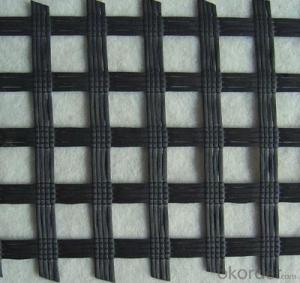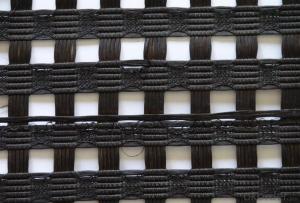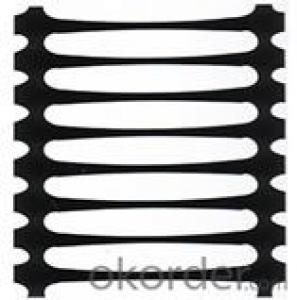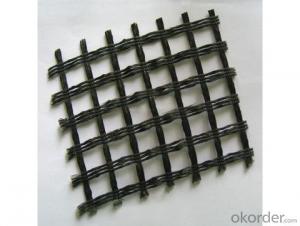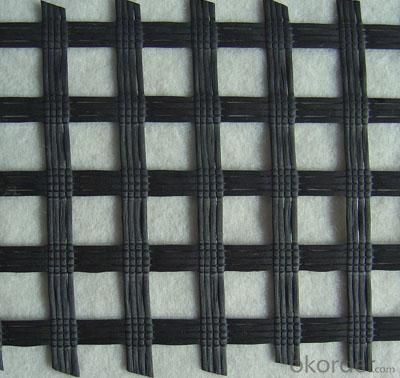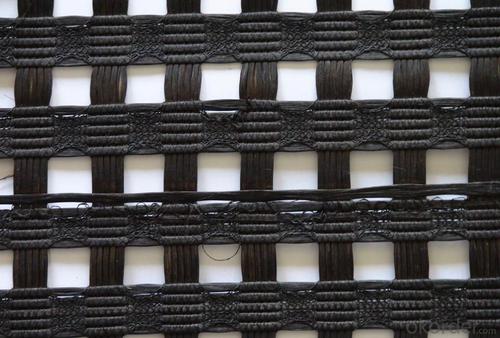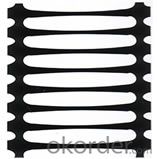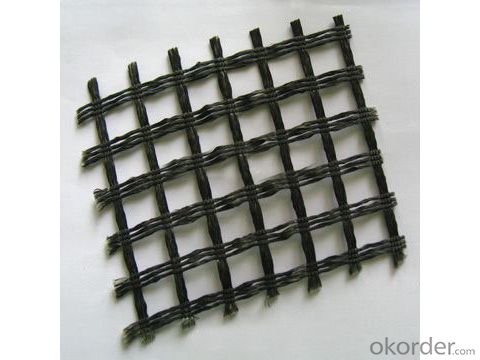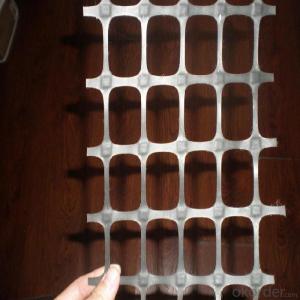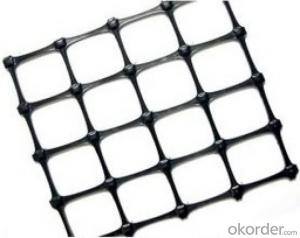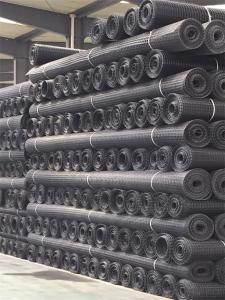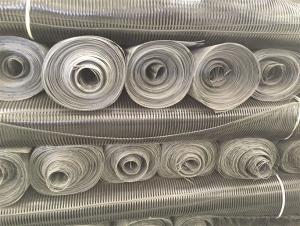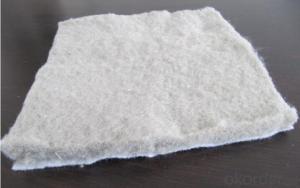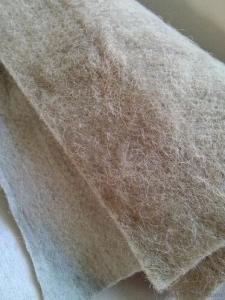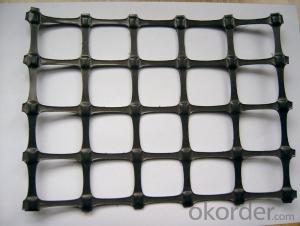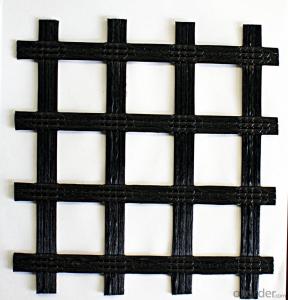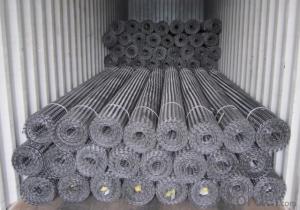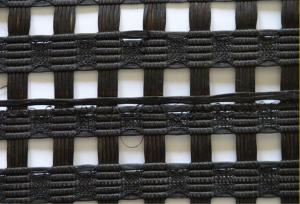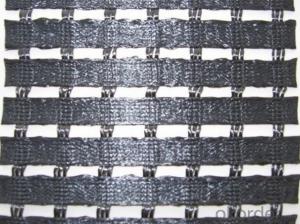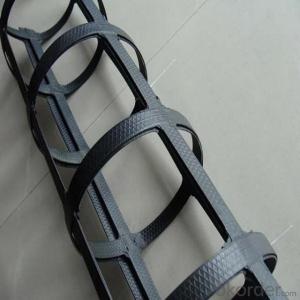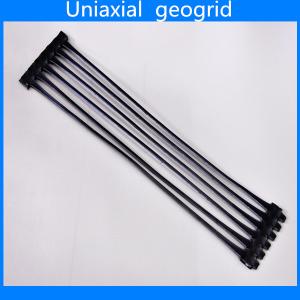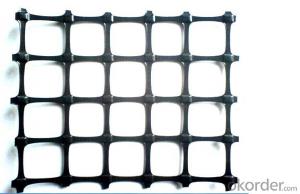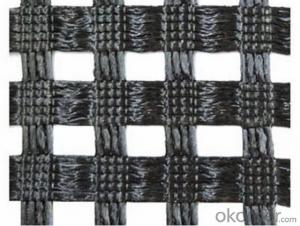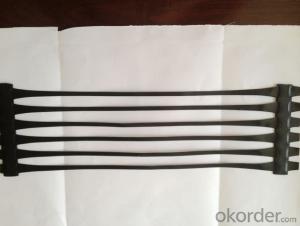Egrid App Biaxial Geogrids - Woven & Knitted BX1200 BX1100
- Loading Port:
- Qingdao
- Payment Terms:
- TT OR LC
- Min Order Qty:
- 1000 m
- Supply Capability:
- 50000 m/month
OKorder Service Pledge
OKorder Financial Service
You Might Also Like
Type:
1) Woven & knitted: use various fiber types (e.g. monofilament, multi-filament, split extruded film) in different combinations.
2)Non-woven: staple or continuous fiber that are heat treated or needle punched to “fix” fiber relative to each other.
Functions:
Major functions: Separation, filtration, drainage, reinforcement, protection, and liquid barrier
1) Filtration
The filtration layer of the dykes, river canal, seacoast, concrete slope, retaining walls. At the same time of preventing the clay granule from passing, it allows the water and the gas pass through freely.
2) Separation
The isolation of the railway dregs and the roadbed, roadbed and the soft base, surface of the airdrome and parking lot and the groundsill, different dam materials. It isolates the soil and the gravel of two kinds of different granule pathway from the groundsill or other buildings.
3 )Adding muscle:
The highway, railway, soil-stone dam, breakwater, airport, backfill soil of retaining wall, slope protection, etc in which distributes the earth stress, prevents the side-displacement of the earth body and improves the earth body stability.
4 )Protection
It prevents the bank from being washed out, protects the bank and the bottom, prevents the water and soil from being washed away.
Specigication:
Quality per unit area(g/m2) | 120g | 160g | 200g | 240g | 280g | 340g | 400g |
After the breaking strength(KN/m)≥ | 20 | 30 | 40 | 50 | 60 | 80 | 100 |
Zonal breaking strength(KN/m)≥ | 15 | 22 | 28 | 35 | 42 | 56 | 70 |
Latitude and longitude to the elongation at break(%)≤ | 25 | ||||||
Trapezoidal tear strength (longitudinal)(KN)≥ | 0.2 | 0.27 | 0.34 | 0.41 | 0.48 | 0.6 | 0.72 |
Bursting Strength(KN)≥ | 1.6 | 2.4 | 3.2 | 4.0 | 4.8 | 6.0 | 7. |
Vertical permeability coefficient(cs/m) | 10-1~10-4 | ||||||
Equivalent aperture(O95mm) | 0.07-0.5 | ||||||
Deviation permit(%) | ±10 | ||||||
- Q: Polyester warp knitted polyester geogrid and glass fiber geogrid price difference in the price of many components is a ghost?
- Different specifications and models can not compare the price, generally speaking, the same specifications, more expensive than glass fiber
- Q: What are the factors that affect the design and selection of geogrids for geosynthetic reinforcement of slopes?
- There are several factors that affect the design and selection of geogrids for geosynthetic reinforcement of slopes. These factors include the type and stability of the soil, the slope angle and height, the expected loads and stresses, the environmental conditions, and the required design life of the reinforcement system. The geogrid material and its strength, stiffness, and durability characteristics are also important considerations. Additionally, factors such as installation methods, cost, and availability of geogrids may influence the design and selection process. Overall, a thorough understanding of the site conditions and project requirements is essential in order to choose the most appropriate geogrid for slope reinforcement.
- Q: Can geogrids be used in railway track stabilization?
- Yes, geogrids can be used in railway track stabilization. Geogrids are commonly used in railway construction and maintenance to reinforce the subgrade and improve load distribution. They help to increase the stability and longevity of the track by reducing settlement and preventing lateral movement of the ballast and subgrade materials.
- Q: How do geogrids improve the bearing capacity of foundations?
- Geogrids improve the bearing capacity of foundations by providing reinforcement and stability to the soil. They act as a strong tensile element, distributing the load more evenly and reducing settlement. This helps to prevent soil movement and failure, ultimately increasing the overall strength and stability of the foundation.
- Q: Can geogrids be used in underground tunnels?
- Yes, geogrids can be used in underground tunnels. Geogrids are commonly used in tunnel construction to reinforce the surrounding soil and provide stability. They help distribute loads and prevent soil movement, enhancing the overall structural integrity of the tunnel.
- Q: Who has the "highway geosynthetics geogrid" specification
- JT/T925.1 2017 highway engineering geosynthetics
- Q: Can geogrids be used in shoreline erosion control?
- Yes, geogrids can be used in shoreline erosion control. Geogrids are commonly used in coastal engineering projects to stabilize the soil and prevent erosion by reinforcing the shoreline. They are effective in providing structural support and preventing the loss of sediment, thereby reducing erosion and protecting the coastline.
- Q: How much is the steel plastic geogrid?
- Steel plastic geogrid 70KN, 5.5 yuan per squareSteel plastic geogrid 80KN, 6.5 yuan per squareSteel plastic geogrid 100KN, 8 yuan per square
- Q: Can geogrids be used in ground stabilization for pipelines?
- Yes, geogrids can be used in ground stabilization for pipelines. Geogrids are commonly used in civil engineering projects, including pipeline construction, to reinforce and stabilize the soil. They provide additional strength and stability to the ground, reducing the risk of ground movement and potential damage to the pipelines.
- Q: What is the effect of strain rate on geogrid behavior?
- The strain rate has a significant effect on geogrid behavior. At higher strain rates, the geogrid's resistance to deformation and its load-bearing capacity tend to increase. This is due to the geogrid's ability to dissipate energy more effectively at higher strain rates. Conversely, at lower strain rates, the geogrid may exhibit reduced load-bearing capacity and increased susceptibility to deformation. Therefore, the strain rate should be considered when designing and analyzing geogrid applications to ensure their optimal performance.
Send your message to us
Egrid App Biaxial Geogrids - Woven & Knitted BX1200 BX1100
- Loading Port:
- Qingdao
- Payment Terms:
- TT OR LC
- Min Order Qty:
- 1000 m
- Supply Capability:
- 50000 m/month
OKorder Service Pledge
OKorder Financial Service
Similar products
Hot products
Hot Searches
Related keywords
